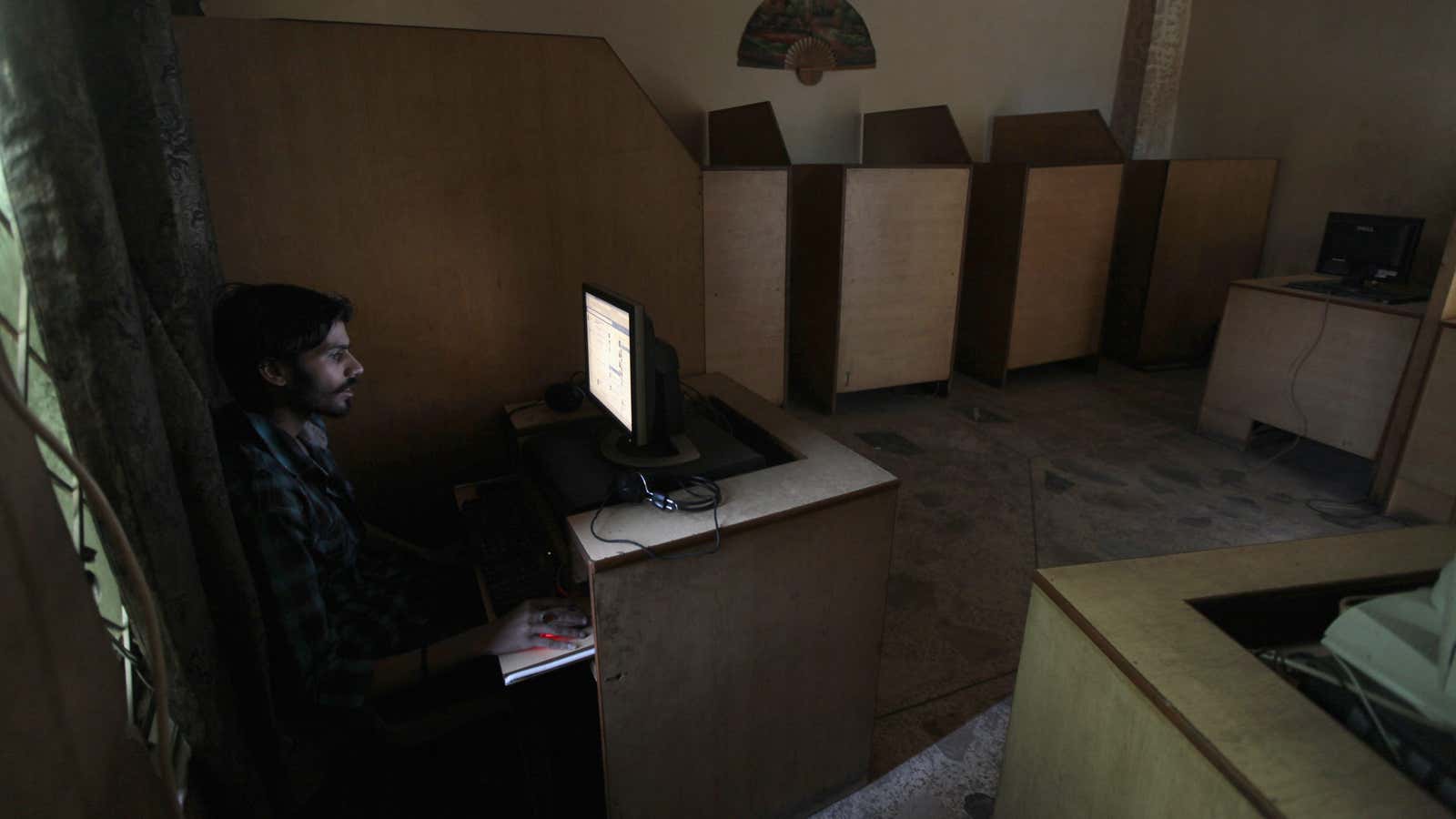Internet shutdowns are more than merely an inconvenience—they’re major economic black holes.
In 2019, India lost over $1.3 billion (Rs9,300 crore) as a result of major internet shutdowns in regions like Jammu & Kashmir, Arunachal Pradesh, Assam, Meghalaya, Rajasthan, Tripura, and Uttar Pradesh, research by Top10VPN, a publication focused on internet privacy, revealed yesterday (Jan.7).
The loss is the third-highest among 21 countries where major internet shutdowns happened last year. The combined toll from all cyber blockades stood at $8.05 billion, estimated Top10VPN.
In India, Jammu & Kashmir had it the worst. The restive state in northern India faced the longest blackout ever witnessed in a democracy. People here have been without the internet for around five months starting Aug. 5, when Article 370, the constitutional provision granting it special status was nullified.
Not only has Kashmir’s tourism suffered severely, the local economy has also taken a big hit. Tens of thousands of artisans were rendered jobless after handicrafts couldn’t be sold online. Some entrepreneurs relocated to other states so business wouldn’t come to a standstill.
Most recently, shutdowns have been imposed in parts of India in the wake of protests against the contentious Citizenship Amendment Act.
“The other major shutdown (in India) also had its root in religious tensions,” Simon Migliano, head of research at Top10VPN, wrote, referring to the supreme court’s November 2019 ruling in the Babri Masjid dispute in Ayodhya. “The government prompted shutdowns ‘to avoid the spread of misinformation’ in Aligarh, Uttar Pradesh, and also in the Rajasthan region,” Migliano said.
And these are only the bigger damages. “India imposes internet restrictions more often than any other country, with over 100 shutdowns documented in 2019. As they tend to be highly-targeted, even down to the level of blacking out individual city districts for a few hours while security forces try to restore order, many of these incidents have not been included in this report, which instead focused on larger region-wide shutdowns,” Migliano said. “The full economic impact is, therefore, likely to be higher even than our $1.3 billion figure.”
